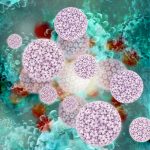Uplizna Found Safe at Reducing NMOSD Attacks in African Americans

Treatment with Horizon Therapeutics’ Uplizna (inebilizumab-cdon) was found safe and effective at reducing the frequency of attacks in African-American adults with neuromyelitis optica spectrum disorder (NMOSD), according to a retrospective analysis of the N-MOmentum clinical trial.
These findings were presented in a poster at the 15th World Congress on Controversies in Neurology, held online Sept. 23–26, the company announced in a press release.
Population-based studies suggest that the prevalence of NMOSD is higher in African Americans than in Caucasians, with earlier disease onset and more relapses. Also, their response to therapies may be suboptimal.
“Studies have shown that African Americans diagnosed with NMOSD often have a distinct experience managing this disease, including an earlier age of onset and more severe relapses compared with Caucasians, as well as different responses to targeted therapeutics,” Evanthia Bernitsas, MD, from the department of neurology at Wayne State University School of Medicine and the study’s lead author, said in the release.
NMOSD is an autoimmune disorder in which the body mistakenly attacks its own cells. The majority of patients have high levels of self-reacting antibodies (called autoantibodies) that target glial cells — cells that support the nervous system.
Uplizna works by targeting CD19, a protein found at the surface of B-cells — the immune cells that produce the antibodies that mistakenly attack the body’s own cells. When Uplizna binds to B-cells, it inhibits their antibody production, thereby reducing the risk of NMOSD attacks.
“This analysis provides useful information about how African Americans may benefit from Uplizna’s CD19 B-cell depleting mechanism to help reduce the incidence of acute attacks,” Bernitsas said.
The U.S. Food and Drug Administration approved Uplizna in June 2020 to treat adults with NMOSD who test positive for aquaporin-4 water channel autoantibodies (AQP4-IgG).
The approval was supported by data from the N-MOmentum Phase 2/3 clinical trial (NCT02200770), which showed that the treatment reduced the risk of relapses in individuals with AQP4-IgG-positive NMOSD.
The trial randomly assigned adults with NMOSD to treatment with Uplizna — given by into-the-vein infusions on trial days one and 15 — or a placebo for 28 weeks or until they had a confirmed NMOSD attack. At this point, they were allowed to enroll in an open-label extension (OLE) part of the study, wherein all patients were treated with Uplizna for at least two years.
In this particular analysis, the researchers evaluated the outcomes of 20 African Americans who participated in the trial. In the first phase, 15 were randomly assigned to Uplizna and five to the placebo group. All patients were then treated with Uplizna in the OLE study.
Results showed that three of 19 African Americans given Uplizna, either in the initial phase and/or OLE, had attacks within 18, 29, and 104 days after their first Uplizna dose.
The annualized attack rate for African Americans was lower — 0.06 compared to 0.09 in the overall group of patients, irrespective of the time of Uplizna dosing. The median rate for African-American patients before enrollment was 1.38.
Treatment with Uplizna led to a rapid and sustained reduction in B-cells in African Americans, consistent with the levels seen in other trial participants.
During the randomized phase of the trial, the rate of infections was lower in African-American participants given Uplizna (26.7%) compared to those on placebo (60%). One patient in the Uplizna group developed cytopenia (lower-than-normal number of blood cells) but it resolved in four weeks.
“NMOSD is a complex and often unpredictable disease that can be challenging to manage, especially in subpopulations that are disproportionally and more severely affected,” said Quinn Dinh, MD, vice president of international medical affairs and pipeline launch strategy at Horizon.
“Ongoing research with Uplizna can help inform treatment decisions in the clinic as physicians work to reduce the debilitating effects of this disease for their patients.”








